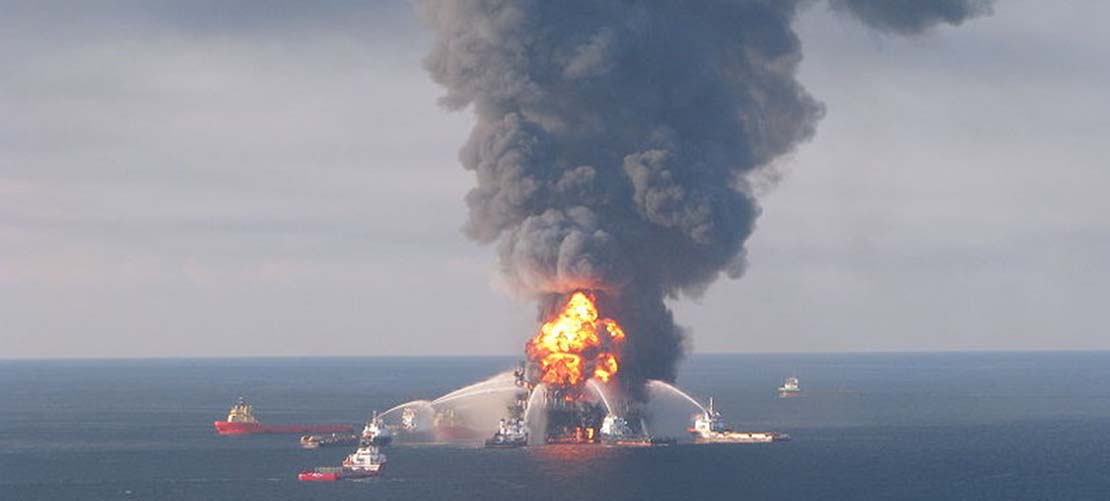
Deepwater Horizon case on actual or apparent bias to go to the English Supreme Court

Stephenson Harwood was recently instructed by the Chartered Institute of Arbitrators (CIArb) to make submissions in support of an application for permission to appeal to the English Supreme Court in the case of Halliburton Company v Chubb Bermuda Insurance Ltd. The application has been successful and the appeal will likely be heard later in 2019.
This controversial case arises out of the Deepwater Horizon disaster in the Gulf of Mexico. In a much-debated decision earlier this year, the Court of Appeal rejected an appeal by Halliburton against the decision of Mr. Justice Popplewell, in which he found that an arbitrator (whose identity has been kept confidential by the Court) had not acted improperly when accepting appointment in two arbitrations, both involving Chubb, and both involving disputes over Chubb’s liability to pay out under Halliburton’s insurance policy towards the cost of settling claims brought by victims of the Deepwater Horizon disaster.
The Supreme Court has now granted permission to appeal, after receiving written submissions from the parties, CIArb, the London Court of International Arbitration (LCIA) and the Court of Arbitration of the International Chamber of Commerce (ICC). All three arbitral institutions supported the application for permission to appeal, given the general importance to the arbitration community of the issues raised. CIArb’s submissions stated that “the uncertainty that has resulted from the Court of Appeal’s decision has left CIArb unable to provide clear guidance or training on a number of fundamental issues of English arbitral law.”
The Deepwater Horizon disaster was caused by the blowout of an oil well in the Gulf of Mexico, which was in the process of being plugged and abandoned. The resulting oil spill caused massive environmental damage and huge economic losses to businesses along the US coast. Four years later, a court in the US state of Louisiana apportioned primary blame for the disaster to the rig’s operator, BP and owner, Transocean. Halliburton was held liable for 3% of the damage as the provider of services in relation to the abandonment of the well. After settling claims against it for some US$1.1 billion, Halliburton sought to recover this amount from Chubb – but its claim was denied. Halliburton therefore commenced an arbitration under the insurance policy against the insurer with the seat in London and under New York substantive law.
When Halliburton and Chubb could not agree upon the identity of the chair of the tribunal, the English Commercial Court appointed a London-based lawyer to chair the tribunal. Prior to his appointment, the arbitrator (who had been Chubb's preferred candidate) disclosed that he had acted and was acting in other cases involving the insurer. He failed, however, to disclose to Halliburton when he was later appointed by Chubb to hear a claim made by Transocean in relation to its own settlement arising from the disaster. Nor did he disclose a subsequent appointment to hear another claim arising from the disaster brought by Transocean against a different insurer.
When this came to light, the arbitrator offered to resign, either from his other appointments, or from the Halliburton case; but he would not resign without Chubb's consent, which Chubb refused to give.
In ensuing challenge proceedings in both the Commercial Court and the Court of Appeal, Halliburton sought to remove the arbitrator, arguing that in all three Deepwater Horizon cases before him the arbitrator would consider similar issues and the same defence from the insurance companies, namely that the settlements were unreasonable and had been reached without their consent.
In the Commercial Court, Popplewell J rejected the suggestion that the arbitrator’s handling of the three cases made him actually or apparently biased, observing that it was “a regular feature of international arbitration in London that the same underlying subject matter gives rise to more than one claim and more than one arbitration without identity of parties”. In such a situation, he said it was undesirable that parties should be constrained in their ability to draw on a small pool of talented arbitrators. Popplewell J also said that if a particular circumstance did not give rise to concerns of bias, the arbitrator’s failure to disclose that circumstance should not, without more, do so either.
The Court of Appeal upheld this judgment, holding that there was a risk that the arbitrator would be made privy to information and arguments in one case that were not advanced in the others but that he “should be trusted” to decide each case on the basis of the information before him. The court also held that the “overlap” in the cases was limited as Halliburton had settled the claims against it before the judgment of the Louisiana court apportioning responsibility for the disaster, while Transocean had done so afterwards with awareness of the court’s findings on liability. The Court of Appeal concluded that although the arbitrator should have disclosed the overlapping appointments, his failure to do so had been an “innocent oversight”.
The arbitration community has reacted with some concern to the Court of Appeal’s decision, particularly in light of the Court’s apparent significant reliance upon the arbitrator’s reputation, eminence and experience. Arbitrators and institutions appear to have been left wondering how, in light of the ruling, they can reliably predict whether a particular arbitrator in a particular case will be required to step down. The decision is also felt to have provided little clarity on the difficult question of multiple appointments in overlapping cases with a common party.
The case also raises the interesting question of whether the test for apparent bias should be identical for judges and arbitrators. The current position in English law is that the same test is applied. However, this case puts that question into relief given that, had the same situation arisen involving a Judge, a case for recusal would have been much weaker. This is primarily because of the closed nature of arbitration proceedings, with the consequence that only one party in each arbitration would be privy to all of the arguments and interaction with the Tribunal in both arbitrations.
The appeal is likely to be heard some time in 2019. CIArb, the ICC and LCIA are expected to apply to intervene in the appeal itself, for which the permission of the Supreme Court will be required.
Stephenson Harwood (Louis Flannery QC, Duncan Bagshaw and Amir Mahdavi) act for CIArb.


